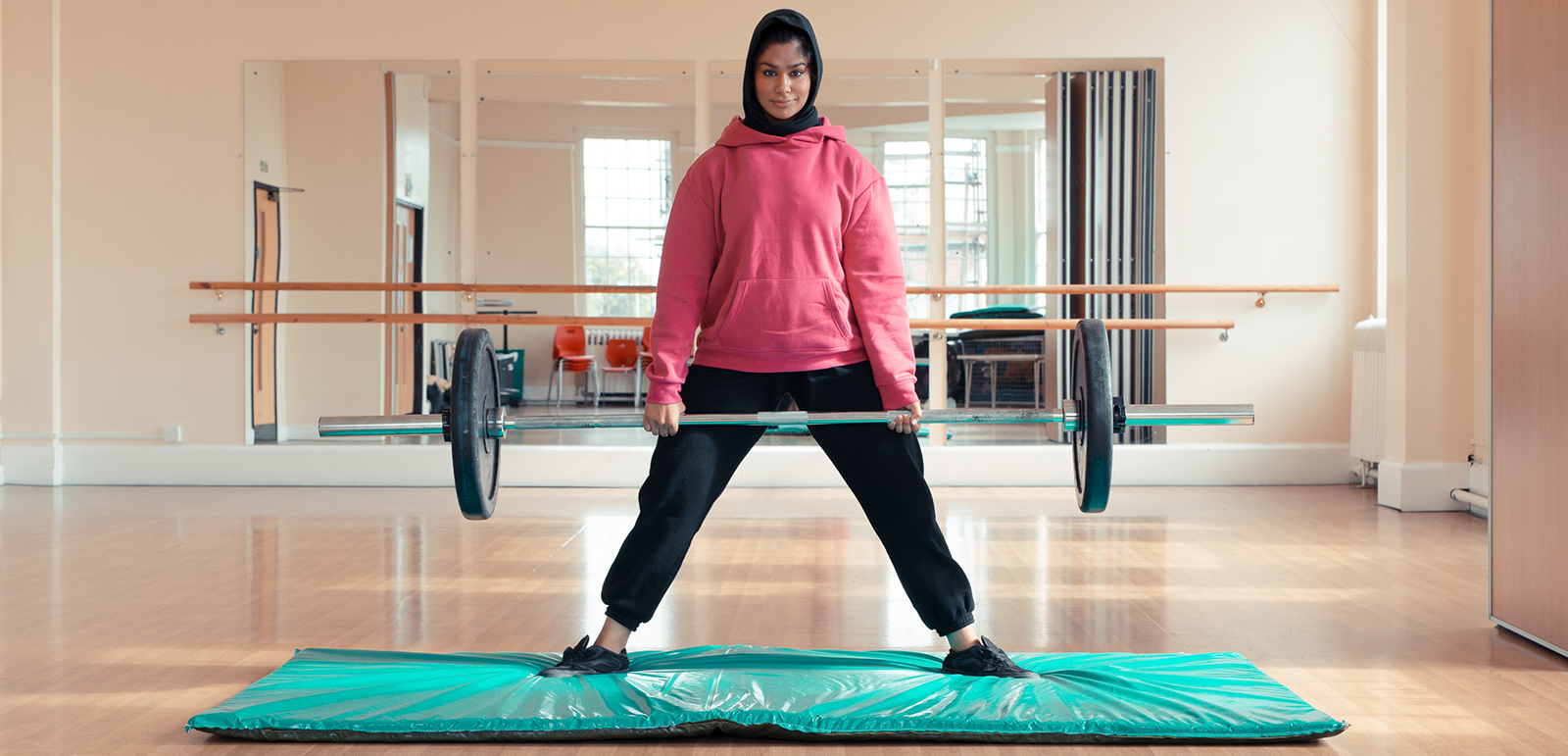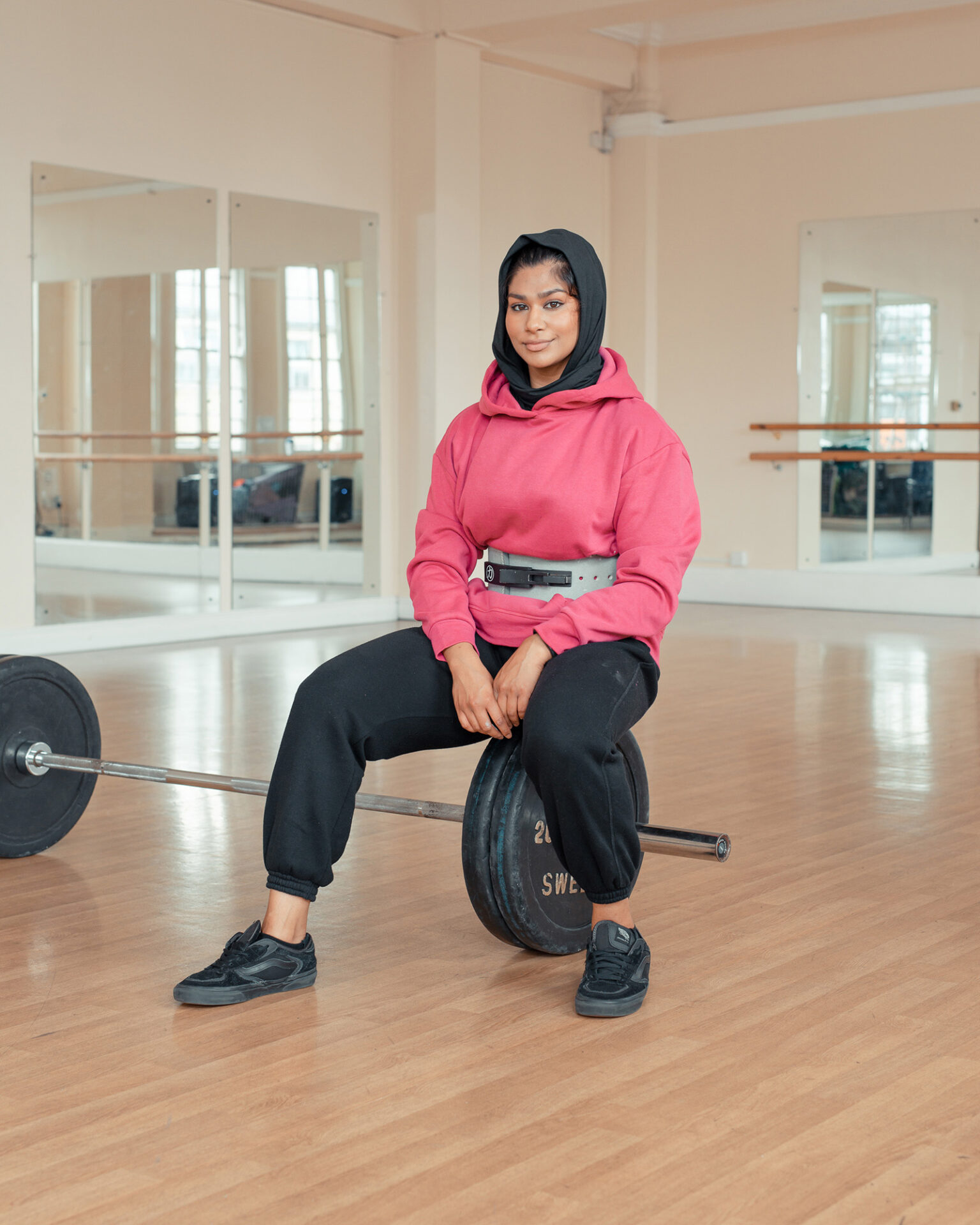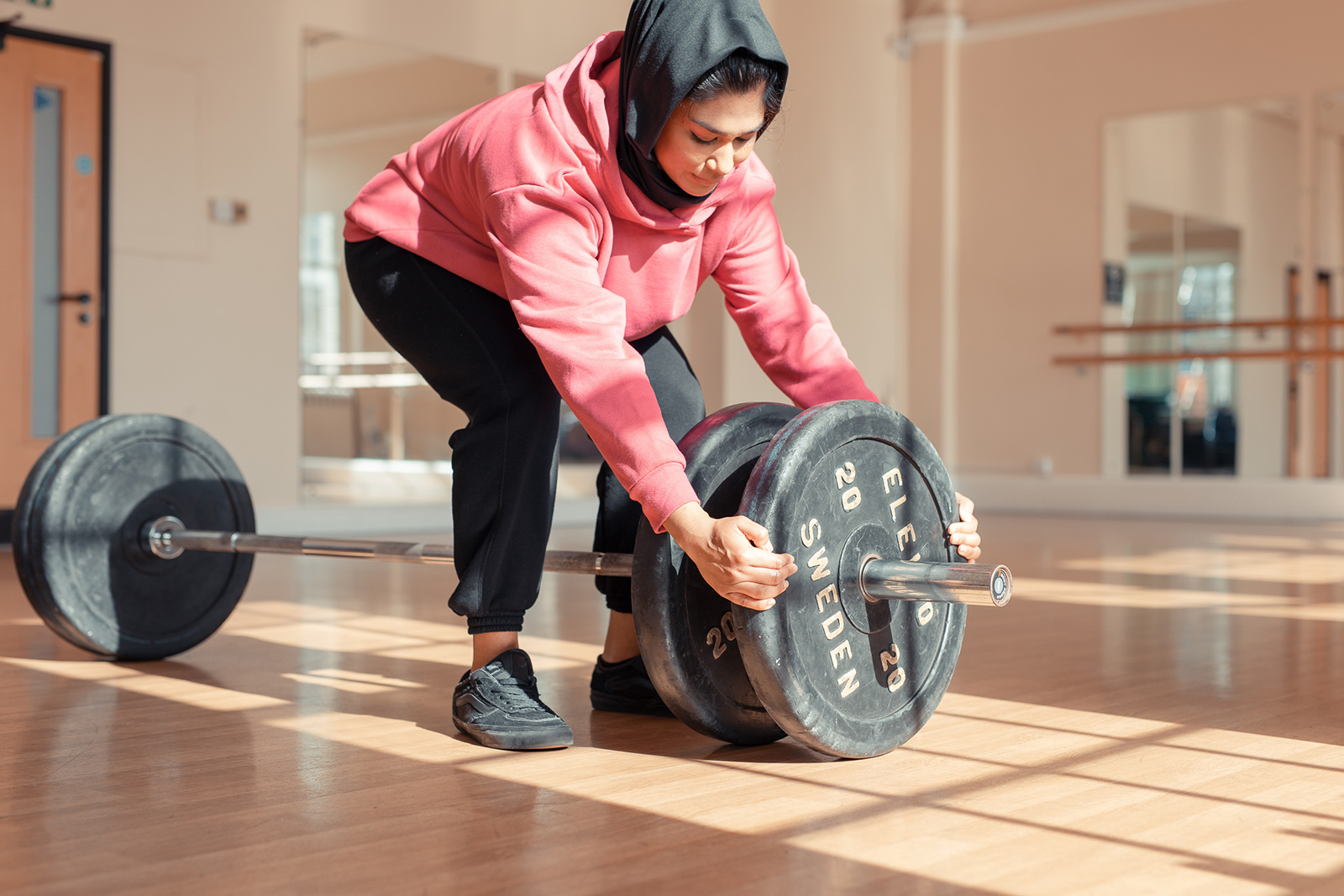The UK hijabis powerlifting their way to glory
These young women are using weightlifting to boost fitness levels and smash stereotypes
–

Tahirah Ali is strong. Really strong. So powerful, in fact, that she can deadlift double her own bodyweight. The 21-year-old from Swansea began weightlifting four years ago to get fit and discovered that she loved it. During the pandemic, she took her new-found passion further — and has ended up as one of the few Muslim women on the sport’s professional competitive circuit.
“It actually happened by accident, as funny as that might sound,” said Ali during a recent telephone call. “I was overweight as a child and I found that my health was really taking a big hit from that, so I decided to make a change.”
Ali has come a long way since then. Last year, she took part in the Welsh Powerlifting Association’s Summer Slam — her first official competition — in which she came third. Now she is preparing to take part in the organisation’s next event in 2023.
Ali attends Cardiff University, where she is learning how to support hospital patients during surgery and recovery, and fits weightlifting around her studies. She shares her workouts on her Instagram page, joining a growing number of Muslim women who are sharing their enthusiasm for the sport on social media. The popularity of this kind of content has birthed search trends such as “Hijabigym”, under which strength-building exercise plans and recommendations for appropriate workout clothing are shared.
Ali’s audience may be small in number, but they are truly dedicated to hyping her up. A typical Instagram video will attract dozens of comments, saying things like “Absolutely smashing it girl!” or “SHE’S RIPPED”. Inspired by this encouragement, Ali is planning a relaunch of her Instagram account, hoping to grow it into a dedicated fitness hub.
Ali’s journey could have been more conventional. She began in 2017 by attending boxercise classes. Far from finding it a chore, she found that working out was actually something she enjoyed. But, just as Ali hit her stride, her instructor stopped working because she became pregnant. Ali was offered a gym membership instead.
“I started lifting just dumbbells and small weights, because I didn’t really have a lot of guidance,” Ali said. “At the start, it was just seeing what I could do. I got to a point where, every week, I was trying different things to see what I was good at.”
Within a year, she was “harnessing explosive powerlifting”, going from light dumbbells to significantly heavier weights. An Instagram video from 2020 shows her hip-thrusting 180kg — two and a half times her own weight — and deadlifting 100kg. At first, Ali’s family, who had never seen a Muslim woman weightlifter, did not understand why she wanted to take part in the sport. But, seeing how committed she was, they were quick to support her.
The opportunity to compete also came to Ali by chance. A colleague, who worked with her on placement in a Cardiff hospital asked if she had ever considered it, but Ali assumed that she wouldn’t be able to. Her concerns were less to do with the demands of the sport than its etiquette and customary attire. At the time, she understood that competitors had to wear a singlet — a swimming costume-like outfit, which exposes the lifter’s legs and arms.
“I was like, everything sounds great. It’s just the dress code that is preventing me from competing.”
Luckily, Ali’s friend knew someone in British Powerlifting, the official body for the sport in the UK. She put Ali in touch with an official who confirmed that rules were in place that allowed Muslim competitors to dress in a manner that corresponds with their beliefs.

The national event was held in Cardiff in July 2021, meaning Ali had only a few months to prepare. She prioritised her training and diet, following a plan to maximise her strength — six sessions a week, each two to three hours long, designed to build up every muscle group.
Ali’s first competition started early in the morning. A weigh-in determined which category she would lift in and who she would compete against. She ended up in the 69kg group. Then, she and her fellow competitors were given a space to warm up in.
Each lifter was put through a sequence Ali describes as “rapid fire”, where they were called to perform specific lifts — squat, deadlift and bench press — at a certain weight. The load was increased for each lifter until they couldn’t complete the lift with proper form. Ali came third, hitting a personal best squat of 120kg.
Weightlifting might have been a happy accident for Ali, but now it is a huge part of her life. In addition to the physical aspect of the sport, she says that it has been of great benefit to her mental health.
It’s a sentiment that many people starting fitness journeys would agree with. According to the mental health charity Mind, even a small amount of physical activity, such as a 10-minute brisk walk, can increase our energy levels, boost mood and help us interrupt racing thoughts.”
For Ali, the appeal of weightlifting lies in its ability to give her mental clarity. “Emotionally it’s my own personal time to work on myself. I really enjoy it because I kind of zone out from the outside world!”
Like Ali, other Muslim women have found weightlifting to be a source of personal fulfillment, as well as a means to connect with other Muslim women who are trying to find their place in the world of fitness and health.
Maymah Makda, 23, has more than 100,000 followers on TikTok and Instagram. Her videos are a mix of motivational messaging and updates of her own fitness journey. She recently hit a deadlift personal best of 160kg, 100kg more than her bodyweight. However, she was initially hesitant to throw herself into the sport.
“When I first started out there were not really any Muslim women that were into fitness for me to hold as inspiration,” she explained. “I didn’t know how I could style gym clothes in a way that made me feel comfortable with hijab and I’ve had to kind of teach myself this.”
Makda’s online presence grew when she started posting weightlifting content to her Instagram page in 2019.
“It was initially just a way of documenting my own progress and having videos to keep for me to look back on,” she said. “When things started to pick up, I realised the huge gap in my niche and decided to start branching out to other apps to show the world that hijabi women deserve a place in the gym too.”
Since then, she has built a loyal following, fitting her online work around her job as a medical professional. She has also worked with a variety of well-known brands, including Gymshark, one of the biggest activewear companies in the world.
Despite the growing popularity of Muslim women weightlifters, hostility is often directed at the content they create. While this criticism comes from all directions, a significant proportion of it is posted by fellow Muslims, who believe that public gyms are not compatible with maintaining “proper” Islamic standards.

According to Yashmin Harun, a founder of the Muslimah Sports Association (MSA), an organisation that aims to create a place where women are free to participate in sports without compromising their religious or cultural beliefs, Muslim women face multiple barriers to building good relationships with exercise. The reasons for this can include judgement from within Muslim communities, but she emphasises that structural barriers play a role too — not least the lack of accessible and inclusive spaces in sports venues across the UK.
“There are some venues, for example, that will say women only, but then have a male coach, or will have a big window that people can see into,” she said.
Harun added that positive representations of Muslim women in sports and exercise are still sorely needed, if large numbers of women are not to feel like these activities are out of bounds to them. It’s a mission that many other Muslim women in fitness and sport are joining. For Makda, Muslim women should be encouraged to think about exercise on their own terms and free from the expectations of others. “My biggest message that I want to give other Muslim girls,” she said, “is just that it’s OK to go to the gym and start taking care of yourself.”
Topics
Get the Hyphen weekly
Subscribe to Hyphen’s weekly round-up for insightful reportage, commentary and the latest arts and lifestyle coverage, from across the UK and Europe
